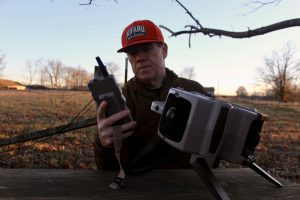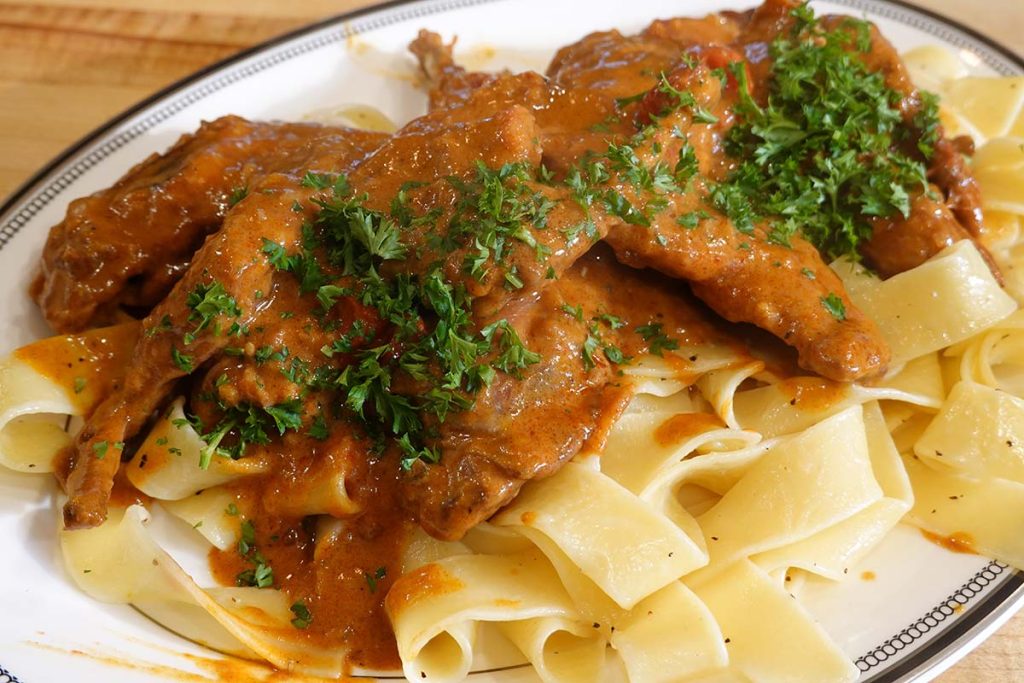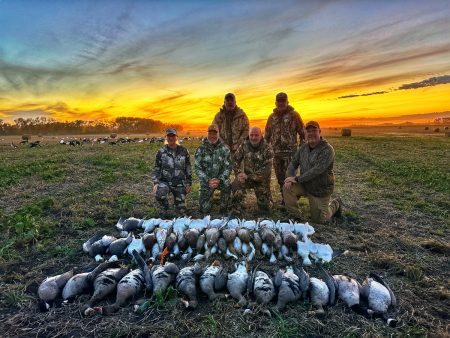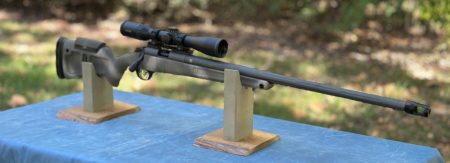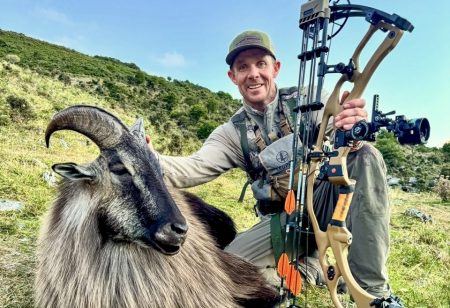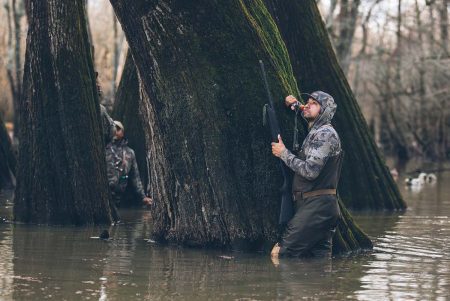Peasant food fit for royalty
As a boy, hunting rabbits wasn’t something I did. My hunting apprenticeship completely missed the heart-pumping action that comes from stalking rabbits, having never acquired rabbit-hunting skills as a boy that would have sped up my (late onset) big game hunting education and success. Hunting rabbits requires effective scouting, keen spotting, quick reflexes and square shooting––every skill required to hunt big game successfully. Rabbits favor the same woods elk, deer and upland birds do and often appear while hunting big game or birds. To be clear, I won’t ruin an elk or whitetail stalk for a chance at a rabbit, but once the big game tags are punched and we have a few days yet to hunt, rabbits are a worthy pursuit.
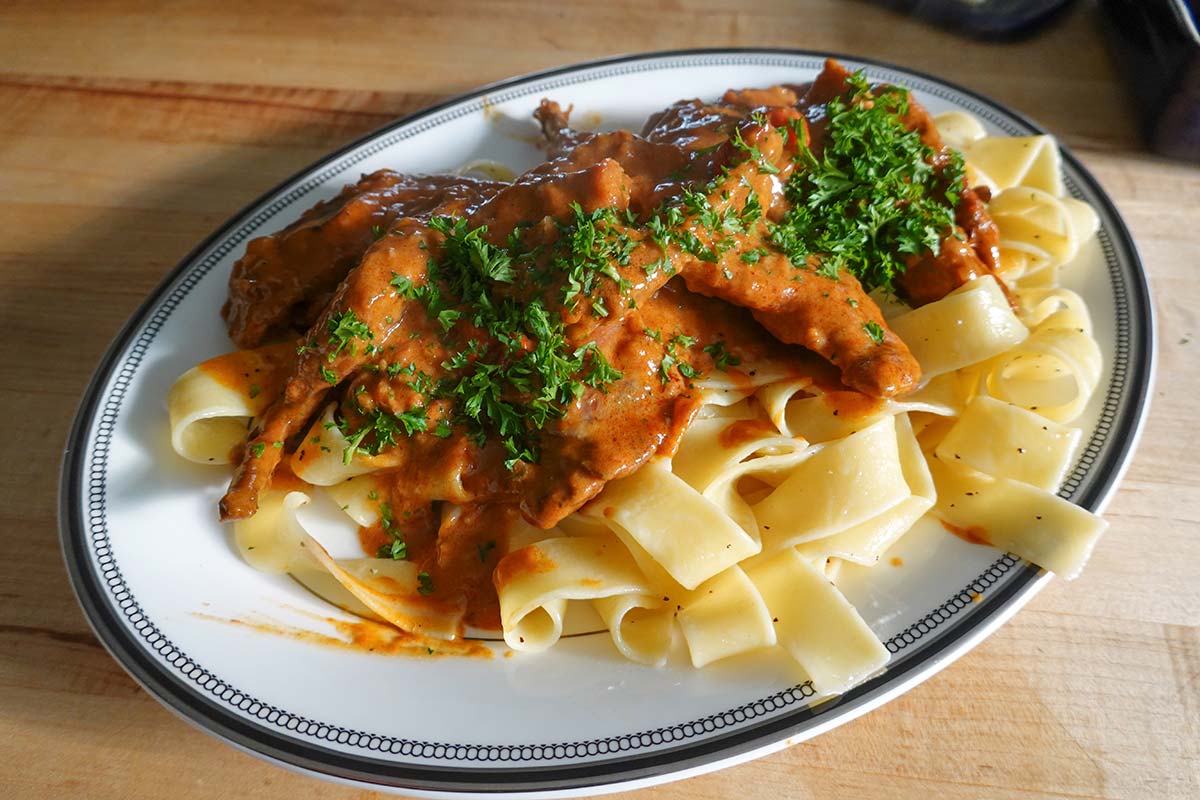
Finding rabbits, shooting rabbits
This fall, while grouse hunting in the boreal forest, I decided to walk just inside the heavy spruce instead of driving the trail edge. I bumped a rabbit and had to get down on my hands and knees with my binocular to find a shiny black eye the size of a marble suspended between two tree trunks as big as my wrists. He didn’t move off very far, and a load of Bismuth number 5 closed that deal. I’ll admit to knocking rabbits down with a carefully placed bullet from my 300 because it was the rifle I had in my hands. My preference for killing rabbits is the shotgun, but 22 Long Rifle hollow points work well too. Aim high on the ribs or make a headshot if you can pull it off and ensure that shot counts. If you don’t knock a rabbit down for good at the shot, they run off to someplace where they are impossible to retrieve.
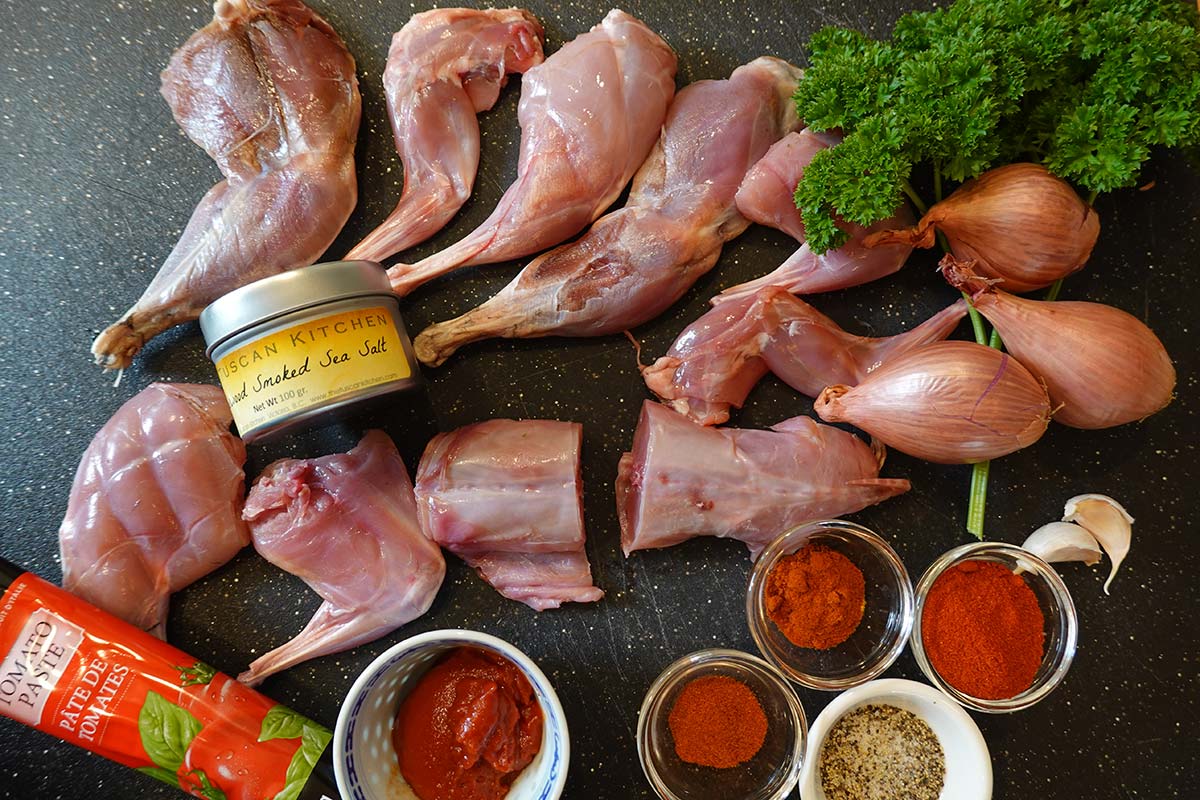
(un) Dressing rabbits
Rabbits field dress and clean up fast compared to big game. Cut a crosswise slit at the back of the rabbit where the head joins the body. Work disposable-gloved fingers in and underneath the fur. Pull off the fur––like removing a jacket and pants, pulling the fur clear of flesh all the way to the feet. Cut through the tendons and separate the paws carefully from the fore and hind legs. Make a slit from the anus to the ribs, being careful not to cut the intestine. Reach in and scoop out the innards. Cut through the rib cage, where the ribs join. Split the pelvis, to remove the tail and clear out any remaining innards. Cut around the neck and twist off the head. This seems to work best when the rabbits are freshly killed. Steve Rinella of MeatEater fame has a great YouTube video on how to skin and part out a rabbit. He reminds hunters to check the liver for spots which indicates the rabbit may have tularemia. If the liver is spotted, discard the entire rabbit.
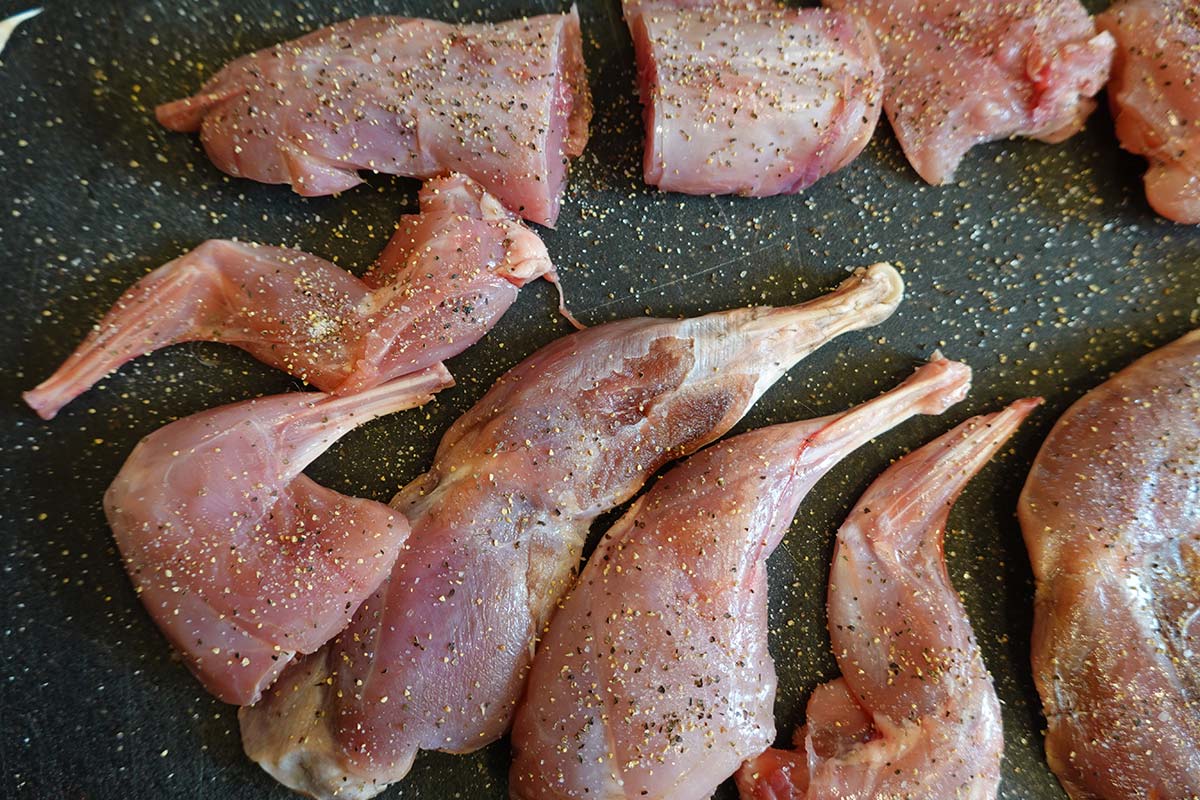
Cooking rabbits
It is a well-known joke that rabbit “tastes like chicken.” Actually, they taste like rabbit. But the meat is more like a lean skinless laying hen (tasty and tough). It needs a bit of moisture, slow heat and extended cooking time to make it tender. Paprikash with its Hungarian roots is a perfect low and low treatment to make rabbit delicious. As a lifelong student of food and food preparation, I have noticed that ‘peasant foods,’ those simple preparations of easily accessible and low-cost ingredients are among the most satisfying. Paprikash has been made with low-cost chicken, and affordable and accessible paprika, tomato and onions for centuries and is easily adapted to rabbit.
Here are instructions to make delicious rabbit paprikash.
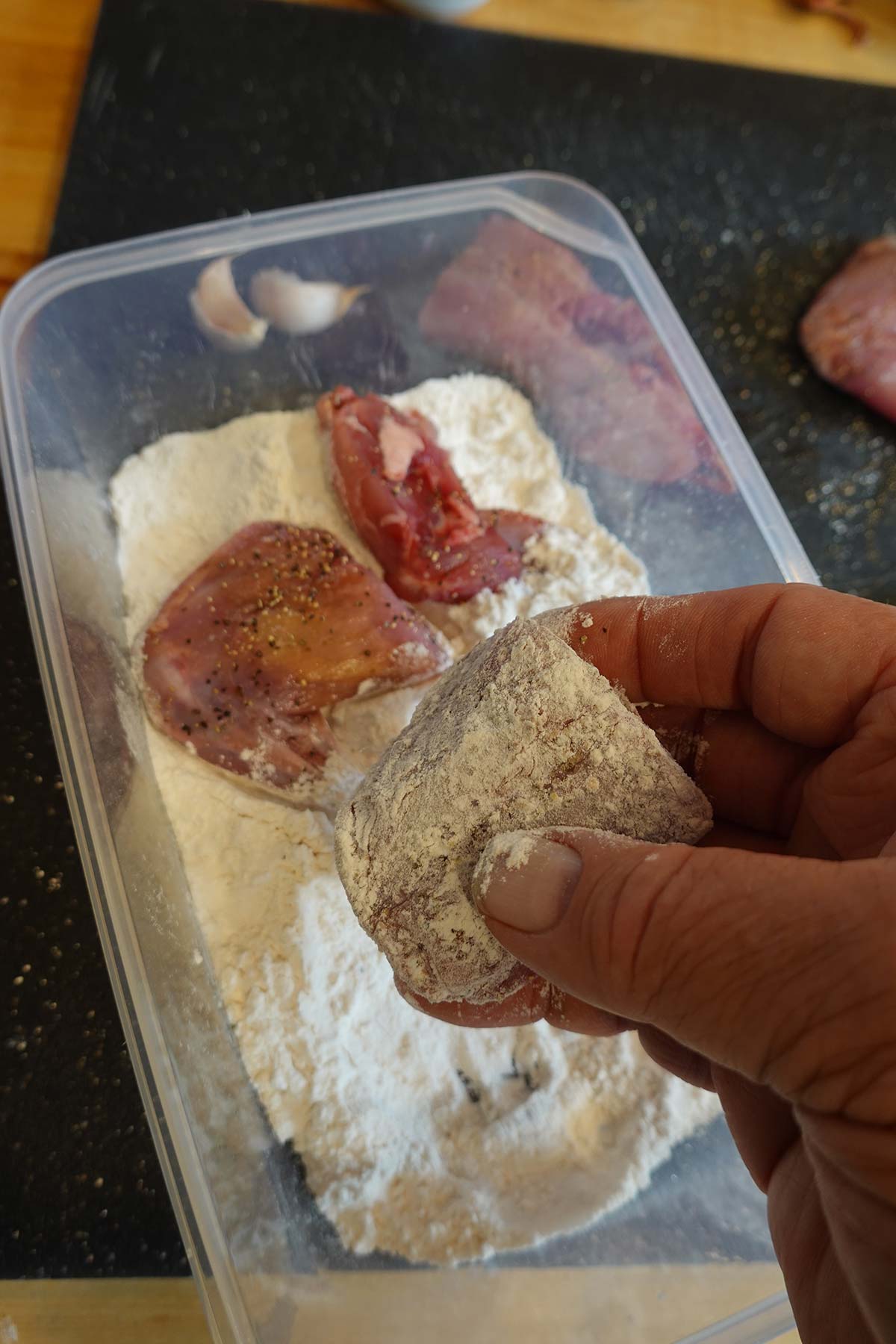
Rabbit Paprikash
Serves 4-6 people.
Equipment
12” Dutch oven with a tight-fitting lid (or similar casserole)
Cutting board
French knife
Stove top burner
oven
Measuring cups or gram-scale
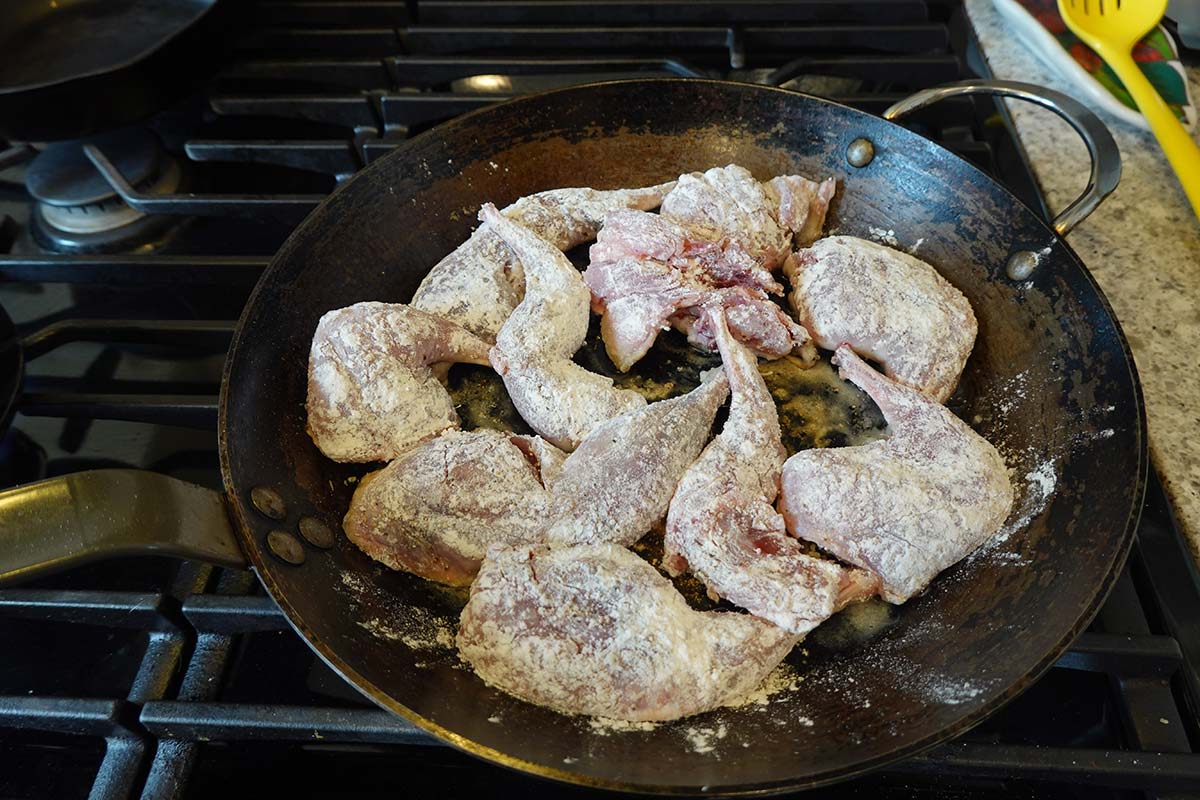
Ingredients
2 rabbits, parted out
Salt and pepper
1-2 cups of all-purpose flour
2 tablespoons canola oil
2 cloves of garlic minced.
1 large onion diced
3 tablespoons of paprika: preferably three different kinds of paprika, one each smoked, one sweet and one hot (proceed with caution on the hot paprika)
1/2 teaspoon smoked salt
3 tablespoons tomato paste
2 cups (500 ml) chicken (or duck or rabbit stock) stock
1 cup (250 ml) red wine
1 tablespoon Asian fish sauce (this is optional, but I am finding it to be great addition to the recipe)
1 tablespoon of honey (this is optional, but a great addition to the recipe)
2 large tomatoes, skinned and quartered (I used a few extra baby tomatoes from the garden)
1 cup sour cream
2 tablespoons corn starch
Fresh parsley for garnish
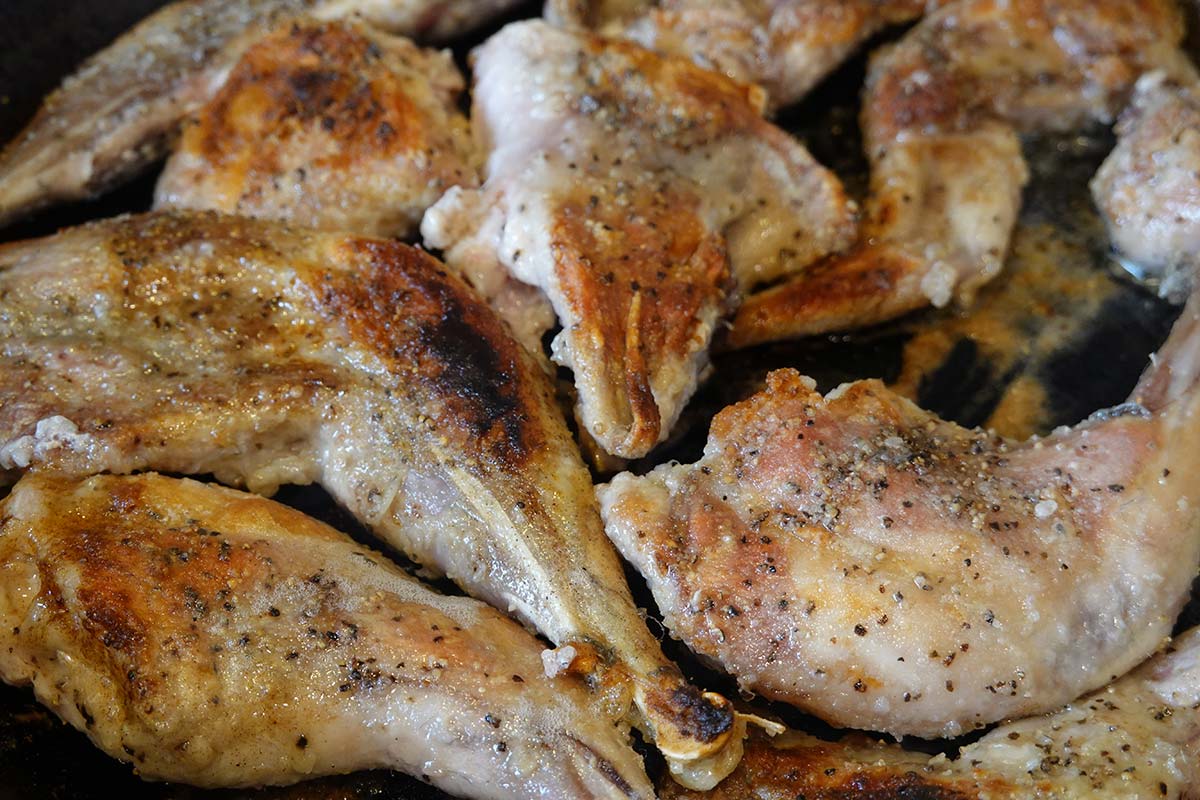
Method
Cut the rabbit into forelegs, and hindlegs, and cut the back/loin into two.
Season well with salt and pepper and let rest while you collect and prepare the other ingredients.
Add the oil to the skillet / Dutch oven.
Dredge the seasoned rabbit in flour and to the pan. Leave a bit of space between pieces.
Brown well on both sides.
Remove the rabbit from the skillet and add garlic and onions. Stir well every minute or so.
Cook for three minutes. Add the paprika and stir well. Cook for one minute.
Add the tomato paste and stir will into the onions and paprika.
Then add the wine and stock still well to deglaze the pan. Bring the works back to a boil.
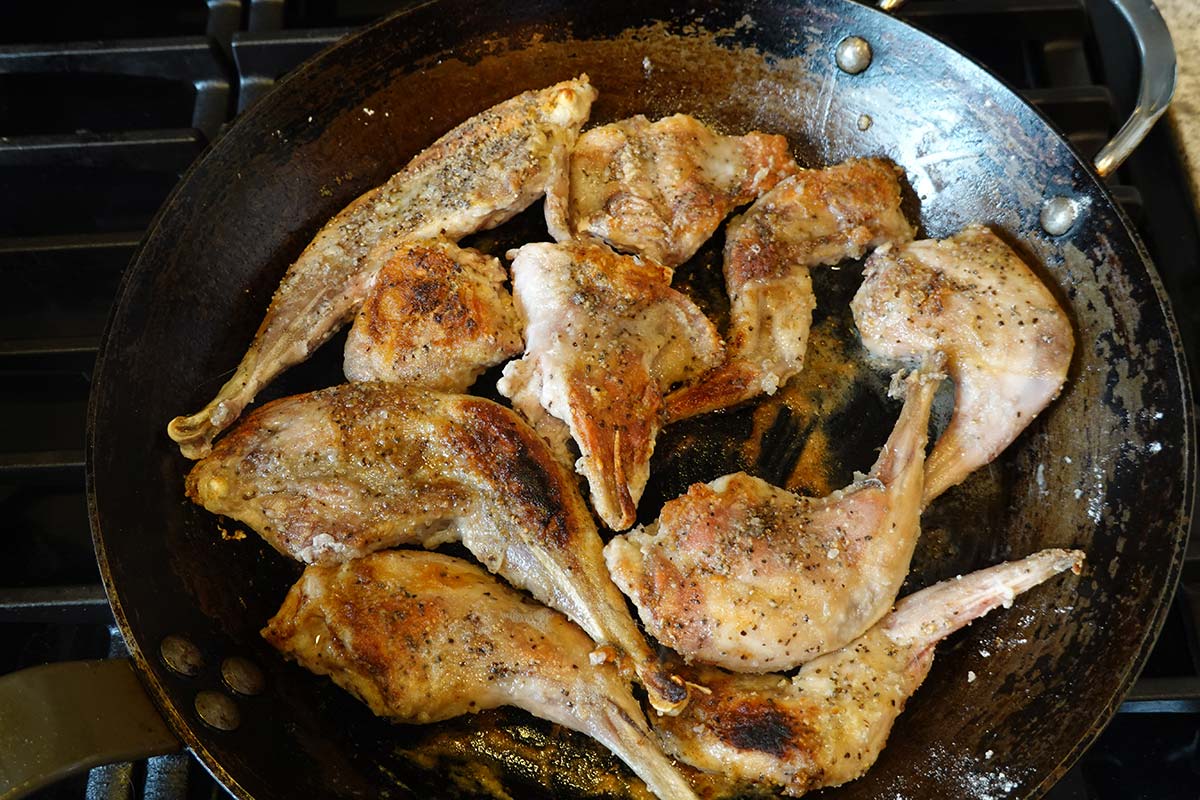
Add the rabbit back into the skillet, cover and bake at 325F for 2 hours.
Remove the Dutch oven from the oven.
Mix cornstarch into the sour cream until it is lump-free.
Add a cup of hot liquid from the rabbit to the cornstarch.
Add the cornstarch back into the rabbit to thicken the sauce.
Bring the rabbit and sauce to a simmer and cook on top of the stove for two minutes.
Garnish with parsley and serve on egg noodles.
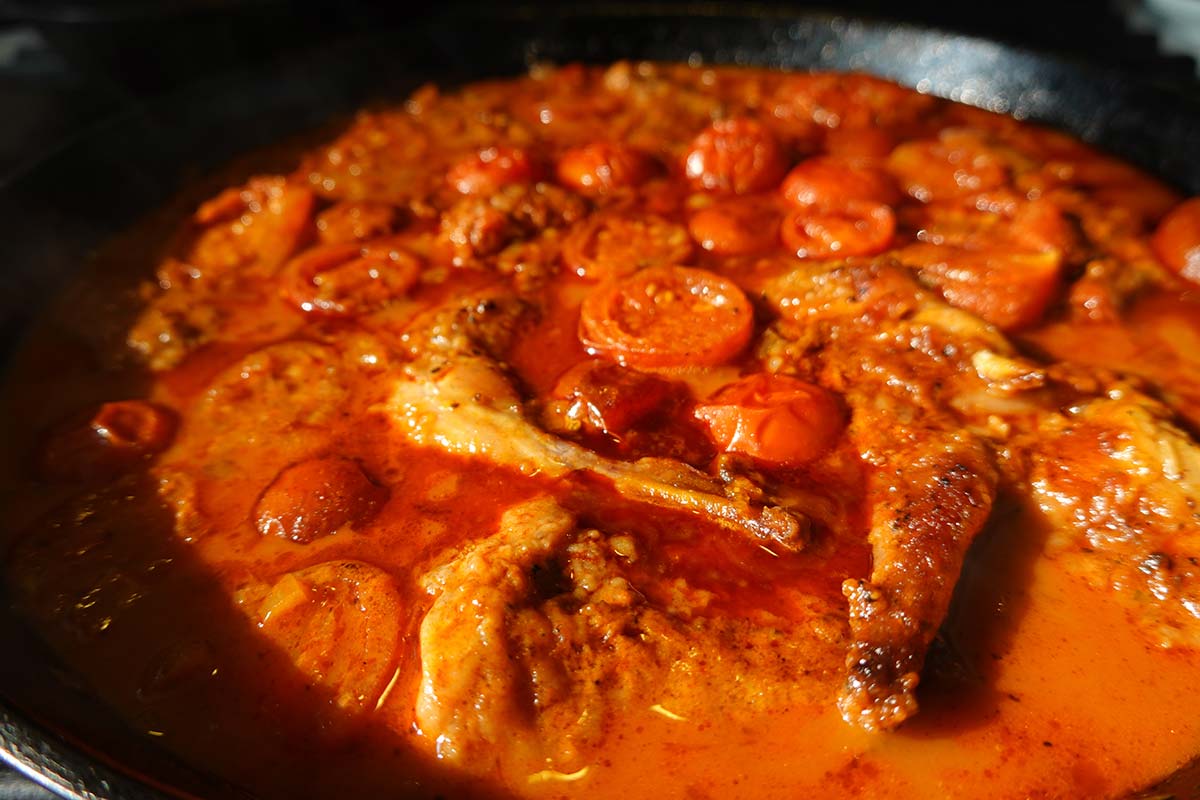
The last time I hunted rabbits in mid-October I collected six in an afternoon––enough for me to experiment with, in the kitchen. A rabbit hunt can be put together on a moment’s notice, packing out the game is easy, and field dressing is a snap. If you have missed out on a childhood of hunting rabbits, may I suggest you consider pursuing the cottontail? Rabbit hunting uses every skill required to take big game and is a wonderful exercise in hunting skill development. There are no tags to buy and the season is 365 days a year long. (Check the game rules and seasons for your area.) I feel like a happy boy when I hunt rabbits––and this recipe makes me feel like a king eating one.
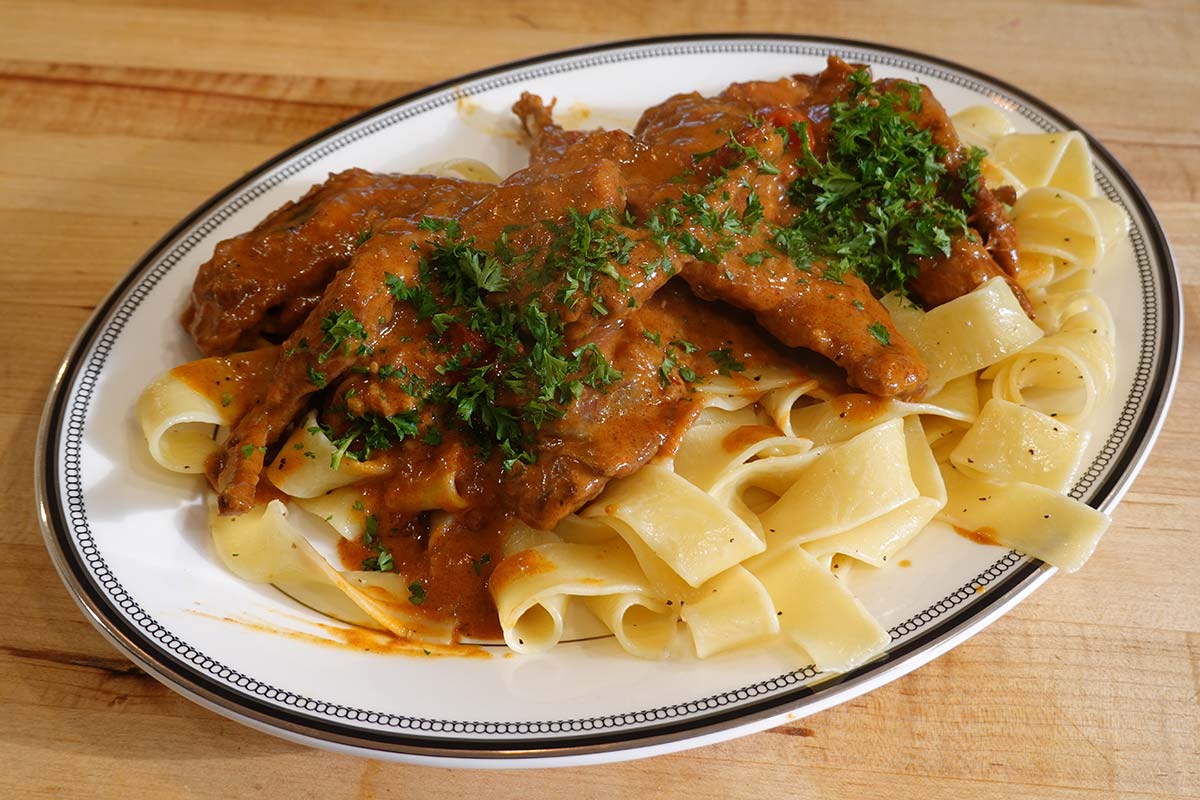
Per our affiliate disclosure, we may earn revenue from the products available on this page. To learn more about how we test gear, click here.

